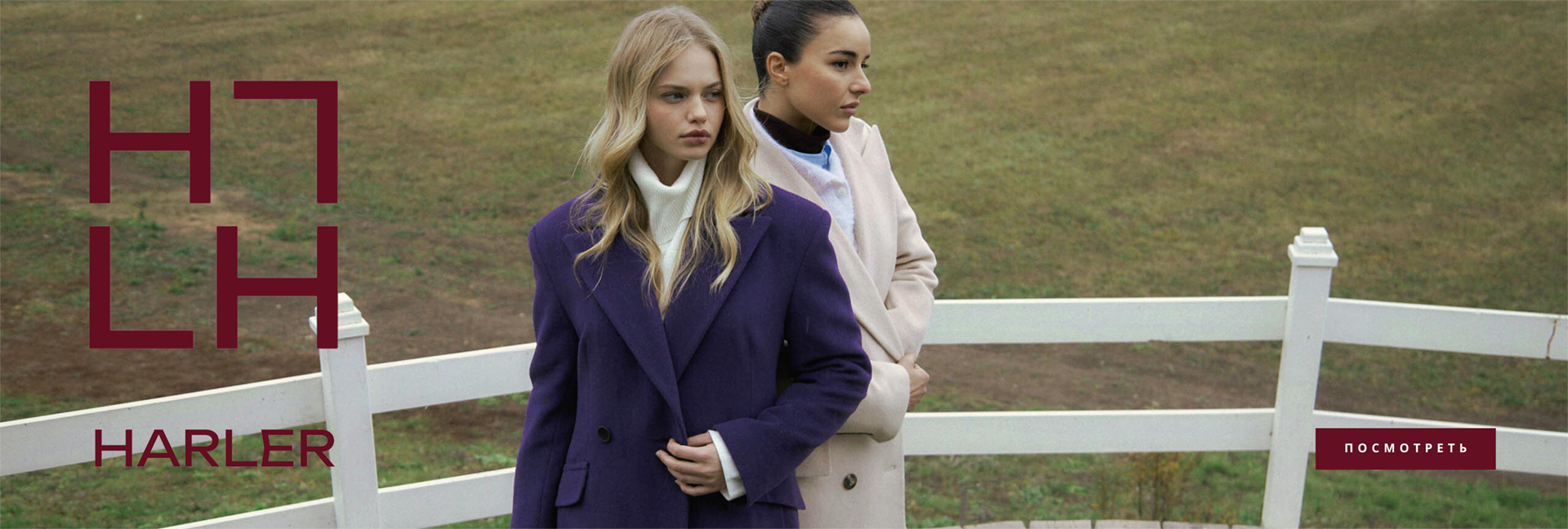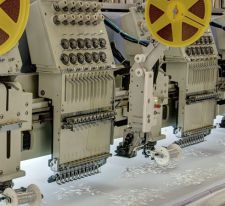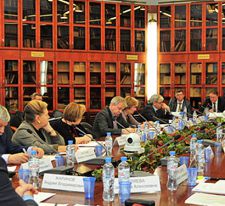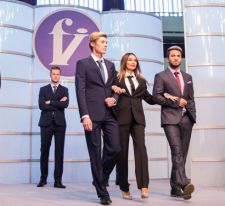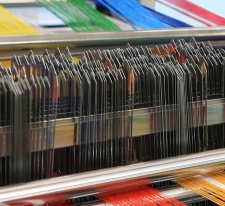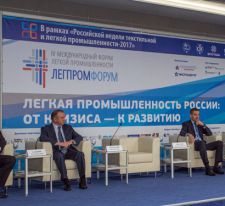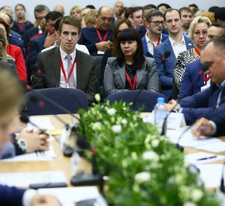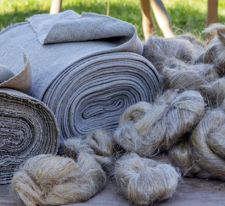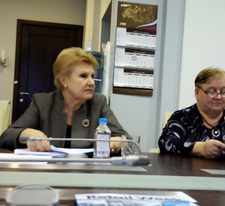In anticipation of the IV Light Industry Forum of the Ministry of Industry and Trade
Yesterday, November 23, 2017, a press conference dedicated to the announcement of the next Light Industry Forum of the Ministry of Industry and Trade, which is held at the end of November, symbolizing the summing up of the outgoing year, was held in MIA Russia today.
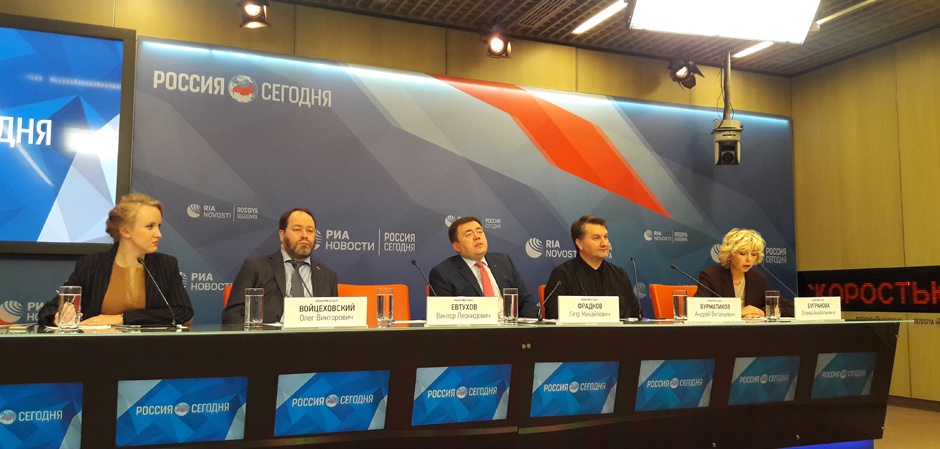
At the press conference, the following speakers: Viktor Yevtukhov, State Secretary, Deputy Minister of Industry and Trade of the Russian Federation,Peter Fradkov, General Director of JSC "Russian Export Center",Elena Bugranova, Head of the Union of Russian Buyers,Oleg Voitsekhovsky, Managing Director of the Russian Council of Shopping Centers, and Andrey Burmatikov, fashion Director of Faberlic.
Since the beginning of 2017, there has been a trend of steady growth in a number of sectors of the domestic light industry, due to the revival of domestic and foreign demand for Russian textile products.Viktor Yevtukhov, State Secretary, Deputy Minister of Industry and Trade of Russia
Russia has all the opportunities for the development of traditional and especially innovative segments of the light industry: first of all, these are polyester yarns, fibers and products of their processing. But these segments are closely interrelated with related sub-sectors of the chemical industry. The focus remains on the PET complex project in the Ivanovo region, the construction of which has not yet begun, but all the formalities have already been resolved. Yevtukhov also noted the importance of joint work with the Ministry of Agriculture of the Russian Federation on the development of the domestic raw material base of the light industry. The main factor in this area is subsidizing and other forms of state support for the production of raw leather, wool, flax, as well as improving the quality of these raw materials. The State Secretary emphasized the possibilities of partial import substitution for cotton, which appear due to the development of projects in the Volgograd and Astrakhan regions.
The press conference also touched upon the subject of tariff policy in the context of the conditions of Russia's membership in the WTO. The Deputy Minister recalled that these conditions remain problematic in terms of increasing direct and indirect state support for the light industry, agriculture and many other industries. In addition, under the same conditions, import duties are reduced, in particular for certain types of fabrics. Nevertheless, in the next 3 years, the Ministry plans to maintain such effective state support measures as subsidizing interest on loans for raw materials, current activities and technical re-equipment; subsidizing the production of worsted and polyviscose fabrics for school uniforms. And also for the implementation of the preferential equipment leasing program. In addition, active cooperation with leading foreign brands in the framework of contract production will continue. And for some types of materials that are not produced in our country, the possibility of completely zeroing duties is being considered, which will also help the development of the industry.
Peter Fradkov, CEO of the Russian Export Center, noted the strategic role of comprehensive state support for non-primary exports, including products of the Russian light industry. This support includes, for example, risk insurance, subsidizing the transportation of export products, a financial component in the organization of industrial exports. And its assistance is all the more necessary against the background of the emerging trend towards the growth of exports of textile and other goods processing industries. It was especially noted that enterprises can receive a refund of the funds spent on trademark registration and obtaining certificates necessary for working with foreign countries.
Elena Bugranova, head of the Union of Russian Buyers, spoke in favor of the priority of the development of the Russian market by Russian manufacturers. First, to satisfy the Russian consumer, to test the model of work on it, and then to think about the expansion of foreign markets. Peter Fradkov disagreed with this opinion, noting that the world experience demonstrates the broad possibilities of "parallel, moreover, quite successful development of two sectors of this and other industries, that is, sectors focused on domestic and foreign demand."
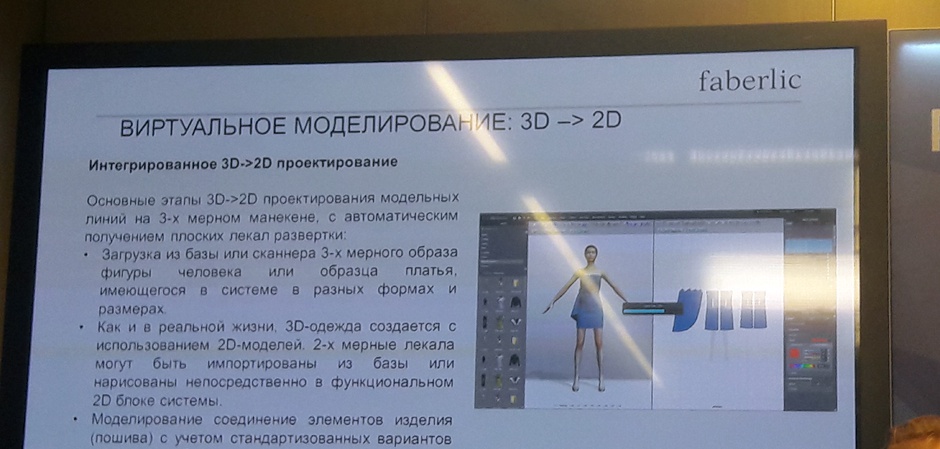
Oleg Voitsekhovsky, Managing Partner of the Festival-Expo, drew attention to the need for a systematic approach to the implementation of industry and inter-industry fair and exhibition projects. And Andrey Burmatikov, fashion director of Faberlic, told reporters about plans to digitalize the light industry in Russia, showed a video demonstrating modern technologies that allow transforming 3D models into a two-dimensional plane, and invited everyone present to a Foresight session that will be held as part of the Forum on November 28.
